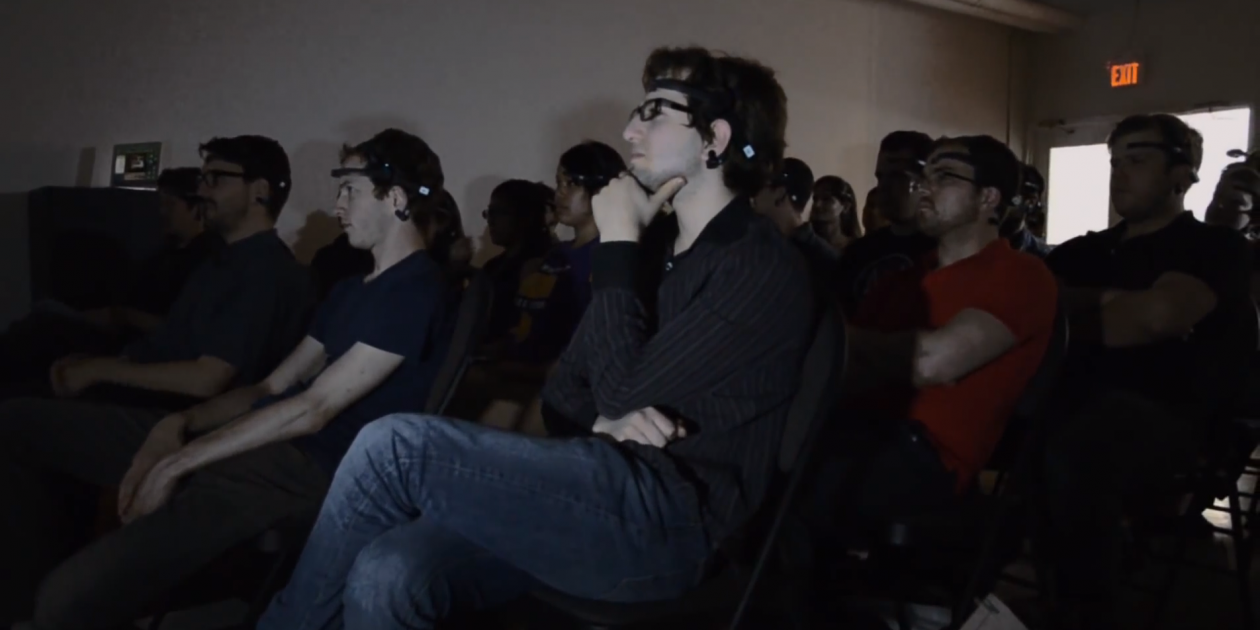Toronto neuromarketing startup Brainsights is taking this week’s Dx3 conference as an opportunity to collect some data on the biggest questions in marketing – by monitoring the brains of the country’s top digital marketers.
Anyone who stops by Brainsights’ Dx3 booth on Wednesday or Thursday can participate in a brain-monitoring experiment. They’ll be asked to wear an EEG headset and watch 10 minutes of ads, while researchers monitor whether they’re showing brain states associated with persuasion.
The results will be aggregated in a whitepaper released later this month, as well as a presentation on Tuesday afternoon curated by Matt Di Paola, Sid Lee’s director of digital innovation. The session will be presented by digital ad buying firm Mediative.
Brainsights founder Kevin Keane said the research will be geared towards two issues. One test will be to determine whether it makes the most sense to use locally sourced creative or re-purposed global assets. The other will be on whether viral content actually succeeds in persuading consumers to like or buy a brand.
“What persuades is very different than what you share on your facebook wall or Twitter feed,” he said.
“We’re chasing that virality because it gives us earned media impressions. But does that actually persuade people to buy? Are they responding to the key messages in the ad that you want to, or are they sharing it because they identify with the value on their social network?”
Keane said it will help marketers answer whether the same budget would be better spent on content with less social amplitude but greater potential to drive brand affinity.
The results could also have some bearing in the debate over whether branded content should identify and focus on a brand, or focus instead on being entertaining and shareable, with the brand and its messaging kept unintrusive.
On the global-versus-local question, it’s commonly believed that local creative is more effective but less efficient than globally sourced material. Keane hopes to find where that balance should be struck – and which campaigns or industries should lean in one direction or the other.
“It may be that global works better for some industries for some and not for others, or it may be that there are some brands that simply do it a lot better. That would be my hypothesis, that there are some brands that strike on those universal insights that are as applicable in China as they would be in Canada,” he said.
Keane, a former Mediacom Canada executive, founded Brainsights in 2013 with the goal of using neuroscience to test and improve ad creative. Brainsights will be running one experiment with up to ten people every half hour throughout the conference.











